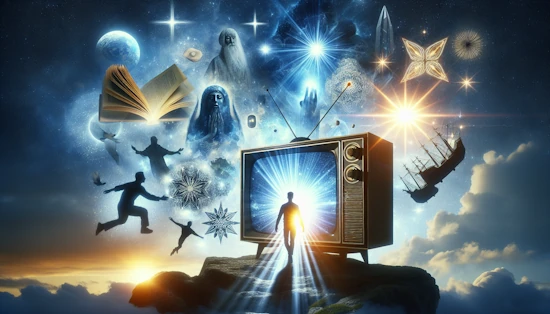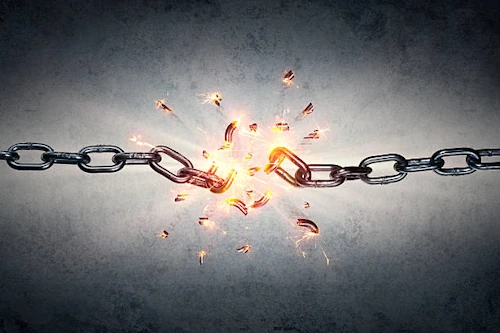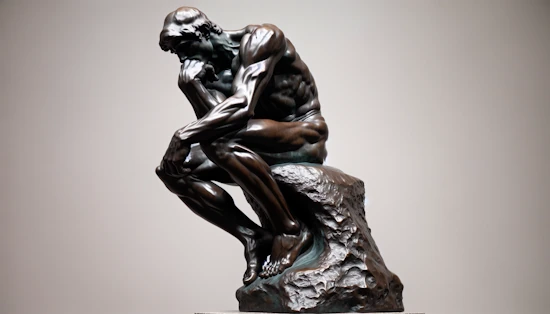“The Truman Show”, premiered in 1998 under Peter Weir’s direction, presents a compelling tale of Truman Burbank, portrayed by Jim Carrey, whose life unfolds within the confines of an elaborate television production. Unbeknownst to Truman, every aspect of his existence is broadcast to a captivated global audience, making his personal journey a public spectacle. This cinematic masterpiece not only entertains but delves deep into themes of enlightenment and the essence of discovering one’s genuine self, setting a profound metaphor for spiritual awakening. It mirrors the awakening process, where the protagonist’s quest for truth and the resultant shifts in consciousness echo the journey toward spiritual growth.

In this analysis, the narrative of Truman Burbank serves as a contemporary allegory, charting a path from disillusionment to enlightenment. Exploring the pivotal role of suffering, synchronicity, and the eventual breakaway from illusion, the article draws parallels between Truman’s epiphany and stages of soul awakening. Delving into the symbolism of Christof’s omnipotence, the director-demiurge of this reality show, it unveils the confrontation between individual awareness and orchestrated control. Through this transcendental examination, the piece aims to uncover the multilayered significance of Truman’s odyssey in relation to broader awakening meanings and insights into spiritual growth.
The Truman Show as a Modern Allegory
“The Truman Show” ingeniously parallels Plato’s Allegory of the Cave, where the protagonist Truman Burbank lives in a superficially ideal world, Seahaven, unaware that it is a meticulously crafted set. This setup serves as a modern rendition of the cave, where Truman, like the prisoners in Plato’s allegory, is deceived by a constructed reality manipulated by the show’s creator, Christof. The film extends this metaphor to the audience, suggesting that, much like Truman, viewers are often confined to a perceptual prison shaped by media.
In exploring the philosophical underpinnings, “The Truman Show” delves into the nature of reality and free will. It portrays the media’s role in sculpting what is perceived as real, where Seahaven represents the shadows on the cave wall – a reality accepted by Truman until curiosity triggers his quest for truth. This allegorical narrative underscores the philosophical assertion that true enlightenment and higher knowledge are achievable not through sensory experience but through introspective reasoning.
The film’s critique of reality television and its prophetic vision of a society obsessed with surveillance and voyeurism resonate with Plato’s insights into illusion and enlightenment. Truman’s journey towards freedom and self-awareness mirrors the ascent from the cave into the light, where he confronts the painful truths of his existence, challenging viewers to reflect on their own perceptions of reality and the constructs that define their lives.
Awakening Process Mirrored by Truman Burbank
Truman Burbank’s evolution in “The Truman Show” from a passive inhabitant of his fabricated world to an active seeker of authenticity and freedom is pivotal. Initially, Truman lives an unremarkable life, comfortably integrated into the false perfection of Seahaven. However, peculiar incidents, such as a studio light falling from the sky and a radio frequency that narrates his movements, ignite a spark of doubt about his reality. These anomalies in Truman’s otherwise regular existence lead him to experience profound disillusionment, a phase that mirrors the early stages of spiritual awakening where one begins to question long-held beliefs and the nature of reality.
As Truman’s skepticism grows, so does his resolve to uncover the truth, despite the elaborate manipulations by the show’s creator, Christof, to keep him oblivious and compliant. Each attempt by Truman to break free from Seahaven is met with orchestrated obstacles, intensifying his quest and suffering. This journey reflects the ‘dark night of the soul’ experienced in spiritual awakenings, a period marked by confusion, isolation, and despair, yet also a crucial step towards profound personal growth and enlightenment. Truman’s relentless pursuit of truth, despite the pain it brings, highlights a universal yearning for authenticity and meaning in life.
The climax of Truman’s quest for autonomy is his courageous sail into the tempestuous sea, a direct confrontation with his deepest fear, instilled in him since childhood. This act of braving the unknown symbolizes the final push in one’s journey towards spiritual awakening, where facing and overcoming one’s deepest fears leads to liberation. When Truman finally reaches the wall of the set—the physical boundary of his known world—he finds a door leading to the outside world, representing the ultimate escape from illusion and entry into a broader, more authentic existence. This moment, where Truman steps through the doorway into uncertainty, encapsulates the essence of awakening, where one leaves behind old constructs and bravely steps into a new realm of awareness and possibility.

The Role of Suffering and Disillusionment
In “The Truman Show,” the portrayal of Truman Burbank’s trials underlines a critical examination of the ethics involved in voyeurism and the objectification of individuals for viewers’ entertainment. The film exposes the moral complexities within the show’s operation, where figures like Christof and Meryl (Truman’s wife) exhibit a facade of care and concern towards Truman, yet simultaneously exploit his life for global amusement. This duality raises significant ethical questions, as it reflects a society that often overlooks the human cost in pursuit of sensationalism.
Christof’s orchestration of Truman’s life, designed to maximize dramatic appeal, inflicts profound emotional and psychological distress on him. This manipulation is a stark commentary on the entertainment industry’s potential to harm individual autonomy and mental health for the sake of ratings. The narrative suggests that such fabrications, while captivating, can have deleterious effects on the human spirit, emphasizing the necessity of preserving individual freedom and authenticity over manufactured narratives.
Moreover, the film encourages viewers to contemplate the repercussions of their entertainment choices. By highlighting the suffering and disillusionment Truman experiences, it advocates for greater empathy and ethical responsibility among audiences and creators alike. It critiques the societal obsession with voyeurism, suggesting that the real cost of entertainment is often the well-being and dignity of those on display. Through Truman’s journey, the film champions the value of genuine human experiences and personal growth, even when accompanied by discomfort and challenges, urging a reevaluation of the boundaries between entertainment and exploitation.
The Significance of Escaping the Construct
In “The Truman Show,” Truman Burbank’s decision to leave Seahaven marks a pivotal moment, symbolizing a profound escape from an artificial existence to seek genuine reality. This act of breaking free resonates deeply with audiences, reflecting a universal desire for authenticity and truth. The film’s conclusion, where Truman’s boat punctures the walls of his constructed world, serves as a powerful metaphor for breaking away from illusions and confronting reality, no matter how daunting that reality might be.
The audience’s reaction to Truman’s escape—cheering his bravery and triumph—highlights a collective admiration for the courage to challenge and overcome oppressive structures. This scene not only captures the essence of personal liberation but also critiques the societal fascination with reality television, which blurs the lines between reality and performance. By stepping out of Seahaven, Truman not only leaves behind a life of falsehood but also invites viewers to question the ethical boundaries of entertainment and the impact of media on perception and privacy.
Furthermore, the film subtly weaves in philosophical and spiritual themes, portraying Truman’s journey as a transition from a state of ignorance to enlightenment, akin to a transformation from Adam to Christ. This allegorical interpretation encourages viewers to reflect on their own soul awakenings and the quest for deeper truths. The dialogue between Truman and the show’s creator, Christof, in the final scene, underscores this transformation, highlighting the struggle between human agency and manipulative control. By choosing to step into the unknown, Truman embraces a new reality, symbolizing an awakening that challenges viewers to reassess their own perceptions of freedom and reality.
Comparing Truman’s Journey with Spiritual Teachings
In “The Truman Show,” Truman Burbank’s path from ignorance to enlightenment is strikingly analogous to the mystical quests described in various spiritual traditions. This journey, often termed the “dark night of the soul” in Christian mysticism, signifies a profound inner crisis that leads to personal transformation and union with the divine. Truman’s experiences mirror this phase as he confronts and overcomes the fabricated realities of his life, much like spiritual seekers confront inner illusions and fears on their path to deeper understanding and connection with a higher reality.
The film also presents a critical view of determinism and free will, themes central to many spiritual and philosophical traditions. Truman’s life, meticulously orchestrated by the show’s director Christof, who symbolizes a controlling deity figure, raises poignant questions about the nature of freedom and predestination. This scenario reflects the spiritual dilemma faced by many: the struggle between living a life that seems predestined by a higher power and the desire to break free from it to discover one’s true self and potential. The choice Truman faces at the film’s climax—whether to continue living in a comfortable illusion or to step into the unknown in search of truth—parallels the spiritual decision to either remain in comfort or venture towards divine enlightenment.

Furthermore, “The Truman Show” subtly critiques the reliability of perceived spiritual truths, emphasizing the importance of questioning and exploring one’s beliefs. Truman’s gradual realization that his reality is a construct engineered by others prompts viewers to reflect on their perceptions and beliefs. This aspect of the film resonates with the spiritual teaching that true understanding comes from direct personal experience rather than passive acceptance of presented realities. By illustrating how Truman navigates through deception towards truth, the film encourages a similar journey for its audience, advocating for a personal exploration of reality that transcends accepted norms and constructs.
Christof as the Personification of Control and Illusion
Christof, the mastermind behind “The Truman Show,” wields absolute authority over Truman Burbank’s life, meticulously crafting each aspect of his reality. This control extends beyond simple manipulation; it delves into the orchestration of his emotions and experiences, reflecting a profound commentary on the power dynamics at play. Christof’s role as a pseudo-deity is underscored by his name, a clever nod to his godlike status in Truman’s world, suggesting he is a ‘Christ-off,’ a false savior wrapped in the guise of a protector.
Despite his overarching control, Christof exhibits a complex relationship with Truman, portraying himself as a benevolent guardian. He argues that his creation provides Truman with a life that, although artificial, is free from the harms of the real world. This duality in Christof’s character brings to light the philosophical quandaries similar to those posed by Descartes’ evil genius—blurring the lines between benevolence and malevolence, reality and illusion. It raises essential questions about the ethics of control and the illusion of freedom within the confines of societal structures.
The film culminates in a poignant dialogue between Truman and Christof, where Christof’s domain is likened to ‘Maya,’ an illusion in many spiritual philosophies that prevents humanity from seeing true reality. This interaction not only highlights Christof’s manipulation but also symbolizes a broader critique of societal illusions—the constructed realities that individuals accept without question. Christof’s character embodies a tyrannical figure, manipulating Truman’s perceived freedom for his own gain, thus providing a stark reflection on the human condition and the pursuit of authentic existence beyond the shadows of illusion.
Conclusion
Through the exploratory lens of “The Truman Show,” this analysis has journeyed across the terrains of existential inquiry, capturing the essence of Truman Burbank’s transition from unwitting protagonist to an emblem of personal liberation and authenticity. The narrative, rich with allegorical depth, masterfully intertwines Truman’s story with broader philosophical and transcendental discourses, reflecting the universal odyssey towards truth and self-realization. By paralleling Truman’s awakening with the stages of spiritual enlightenment, the article underscores the profound impact of introspection, courage, and the relentless pursuit of genuine existence in the face of constructed realities.
The film not only serves as a mirror for societal introspection but also as a clarion call for the embracement of individual sovereignty against the backdrop of illusion and manipulation. The significance of Truman’s defiance lies not just in his personal emancipation but in the broader implications for viewers, urging a reevaluation of perception, reality, and the ethical dimensions of entertainment. In stepping beyond the confines of Seahaven, Truman not only claims his autonomy but also ignites a dialogue on the essence of human freedom, the thirst for authenticity, and the critical examination of the worlds we accept as real. This journey invites further exploration and reflection, encouraging audiences to transcend their allegorical caves in search of a truth as unbounded as the seas Truman bravely navigated.
So, are you also an Awakened One? Or perhaps you would like to be? Why not start by measuring your level of awareness and spiritual enlightenment with our tests?
TAKE THE AWARENESS TEST
TAKE THE AWAKENING TEST
TAKE THE GREAT PERSONALITY TEST
MINI SELF-EVALUATION TEST: ARE YOU UNDERGOING SPIRITUAL AWAKENING?
Read the sentences below and select the ones you agree with and that you think make the most sense.
Count the number of boxes checked and read the corresponding profile.
0: You are sleeping soundly
1-2: You are sleeping but not completely
3-4: You wish to awaken but something is slowing you down
5-6: You are awakening
MINI SELF-ASSESSMENT TEST: ARE YOU A NAIVE PERSON?
Read the sentences below and select the ones you agree with and that you think make the most sense.
Count the number of boxes checked and read the corresponding profile.
0: You are not naive at all
1-2: You are a little bit naive
3-4: You are quite naive
5-6: You are terribly naive
